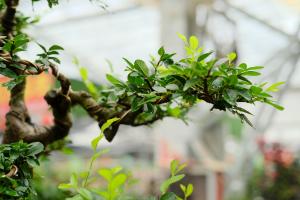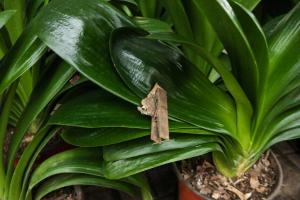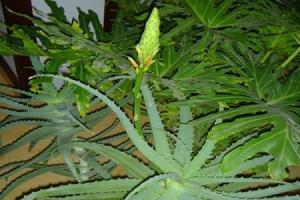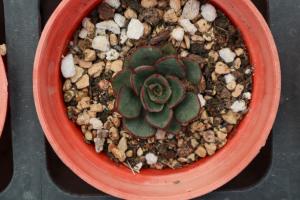What Causes Tomato Plant Leaves to Turn Brown on End?
Tomatoes are some of the most popular vegetables grown in gardens and greenhouses worldwide. They are easy to grow, produce a bountiful harvest, and are available in a variety of colors and sizes. However, like any plant, tomatoes are prone to various diseases and problems that can impact their growth and productivity. One such issue is brown spots or discoloration on the ends of tomato plant leaves. This article explores the reasons behind this problem and offers solutions for preventing it.
Causes
Several factors can cause tomato plant leaves to turn brown on the end, which include:
1. Blossom End Rot
Blossom end rot is a common condition that occurs when a plant lacks calcium. When there is insufficient calcium in the plant, the tissue on the end of the tomato begins to break down and turn brownish-black. Blossom end rot can be caused by over-fertilization, under-watering, or fluctuations in temperature.
2. Fungal or Bacterial Disease
Fungal and bacterial diseases can cause leaves to turn brown on the end. One of the most common culprits is Early Blight. Symptoms of this disease include brown spots that appear on leaves and stems, starting from the bottom of the plant and moving upwards. As the disease progresses, the leaves will wilt and turn yellow.
3. Pests
Pests such as aphids or spider mites can cause tomato plant leaves to turn brown. These insects damage the foliage of the tomato, causing tissue to break down and turn brown. If the infestation is severe, the plant may also begin to drop leaves.
Prevention
To prevent your tomato plant leaves from turning brown on the end, here are some tips:
1. Watering
One of the crucial factors to prevent brown ends on tomato plants is proper watering. Regular and consistent watering will help to prevent the soil from becoming dry, and will allow the plant to absorb calcium. Water deeply and less frequently to encourage deep root growth and prevent soggy, overwatered soil.
2. Soil Management
Ensure the soil has the right pH level and is rich in nutrients. Consider adding compost, magnesium, and lime to boost soil fertility and improve calcium uptake. It's also a good idea to mulch your plants to retain soil moisture and prevent soil from drying out.
3. Practice Good Garden Hygiene
Practice good garden hygiene to prevent bacterial and fungal diseases. Rotate your crop each season, remove diseased plants promptly, and avoid working in the garden during wet conditions to prevent spreading diseases.
4. Monitoring and Control Pests
Monitor your tomato plants for pests regularly and take action to prevent an infestation. Introduce beneficial insects such as ladybugs or lacewings to your garden to help control aphids, spider mites, or other pests.
Conclusion
In conclusion, brown ends on tomato plant leaves can be caused by several factors, including calcium deficiency, bacterial and fungal diseases, or pests. The good news is that this problem is preventable. With proper soil management, regular watering, and good garden hygiene, you can prevent brown ends on tomato plant leaves and grow a healthy and productive crop.

 how many times do yo...
how many times do yo... how many planted tre...
how many planted tre... how many pine trees ...
how many pine trees ... how many pecan trees...
how many pecan trees... how many plants comp...
how many plants comp... how many plants can ...
how many plants can ... how many plants and ...
how many plants and ... how many pepper plan...
how many pepper plan...































